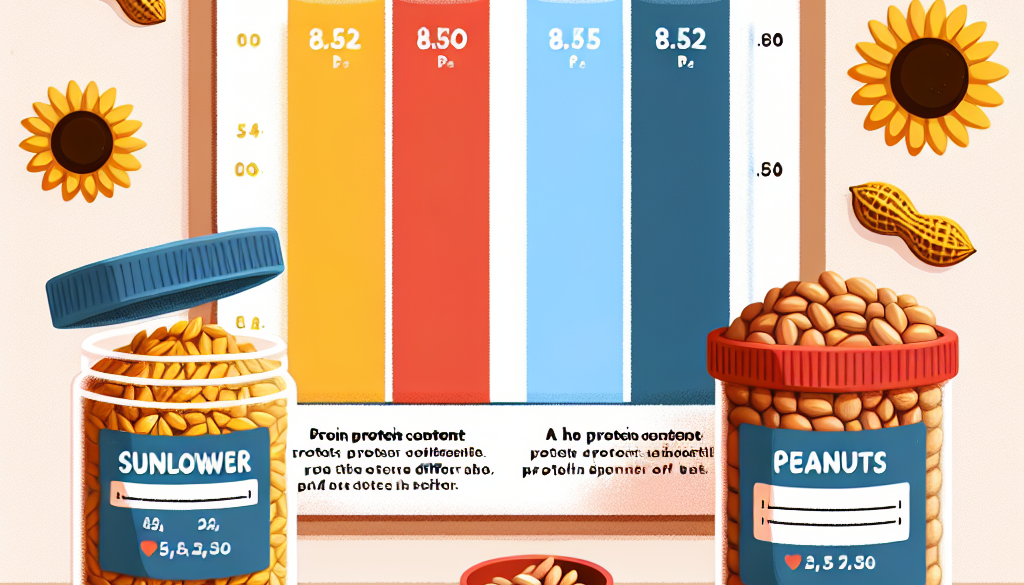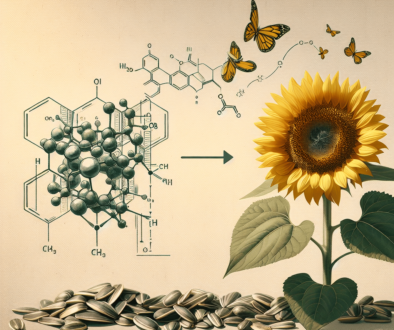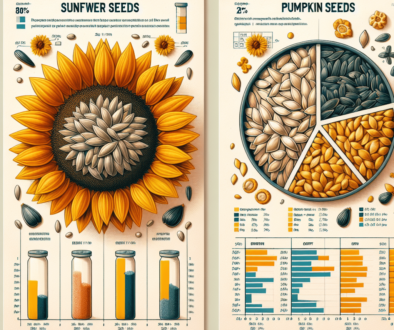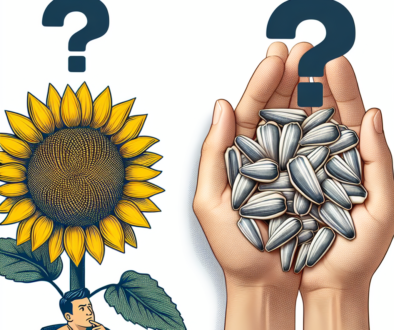Are Sunflower Seeds Better Than Peanuts For Protein?
-
Table of Contents
- Sunflower Seeds vs. Peanuts: Which Is the Superior Protein Source?
- Nutritional Breakdown: Sunflower Seeds vs. Peanuts
- Protein Quality and Amino Acid Profiles
- Health Benefits and Considerations
- Environmental Impact and Sustainability
- Practical Uses in Diet and Cooking
- Conclusion: Balancing Protein Sources for Optimal Nutrition
- Discover ETprotein’s Premium Protein Products
Sunflower Seeds vs. Peanuts: Which Is the Superior Protein Source?
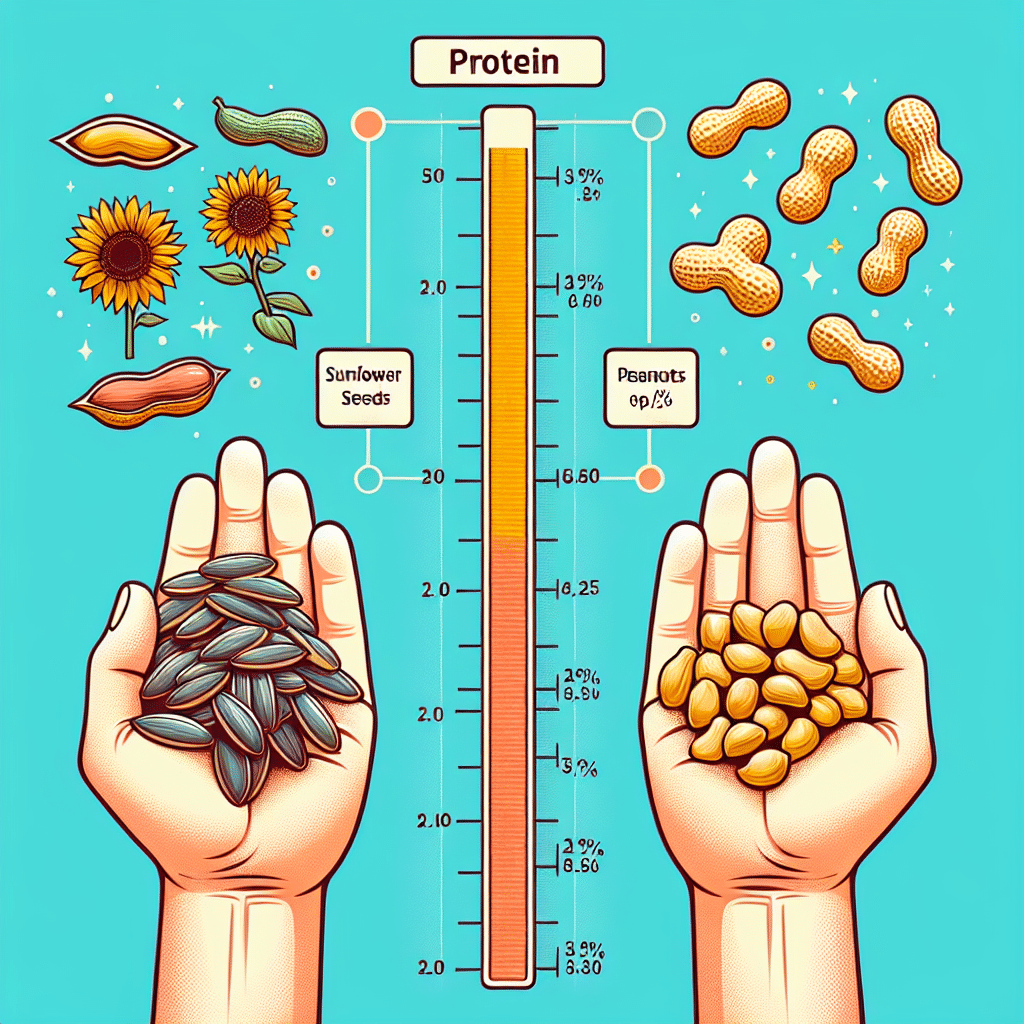
When it comes to plant-based proteins, nuts and seeds are often at the forefront of the conversation. They’re not only packed with essential nutrients but also serve as a great source of protein for vegetarians, vegans, and those looking to reduce their meat consumption. Among these, sunflower seeds and peanuts are popular choices. But which one is better for protein? This article delves into the nutritional profiles of both to determine which seed might be the superior source of protein.
Nutritional Breakdown: Sunflower Seeds vs. Peanuts
Before we can compare the protein content of sunflower seeds and peanuts, it’s important to understand their overall nutritional value. Both are high in protein, healthy fats, and various vitamins and minerals, but they have distinct nutritional profiles.
- Sunflower Seeds: Typically, a quarter-cup serving of sunflower seeds contains about 7 grams of protein. They are also rich in vitamin E, magnesium, and selenium. Sunflower seeds are a good source of dietary fiber and contain heart-healthy monounsaturated and polyunsaturated fats.
- Peanuts: A quarter-cup serving of peanuts provides about 9 grams of protein, slightly more than sunflower seeds. Peanuts are also a good source of biotin, copper, niacin, folate, manganese, vitamin E, thiamine, phosphorus, and magnesium. They contain a mix of monounsaturated fats and polyunsaturated fats as well.
While peanuts have a slight edge in protein content, sunflower seeds are not far behind. However, the quality of protein is also an important factor to consider.
Protein Quality and Amino Acid Profiles
Proteins are made up of amino acids, some of which are essential because the body cannot produce them. A complete protein source contains all nine essential amino acids in sufficient quantities.
- Sunflower Seeds: Sunflower seeds contain a decent balance of essential amino acids but are lower in lysine, making them an incomplete protein source.
- Peanuts: Peanuts also have an imbalance in amino acid profiles, being lower in methionine. However, when combined with other foods like grains, they can provide a complete protein.
Both sunflower seeds and peanuts can contribute to a well-rounded diet when paired with other protein sources to ensure all essential amino acids are consumed.
Health Benefits and Considerations
Aside from protein content, there are other health benefits and considerations to take into account when choosing between sunflower seeds and peanuts.
- Heart Health: Both seeds contain heart-healthy fats that can help lower bad cholesterol levels and reduce the risk of heart disease.
- Weight Management: The protein and fiber in both sunflower seeds and peanuts can help with satiety and weight management.
- Allergies: Peanut allergies are common and can be severe. Sunflower seeds may be a safer alternative for those with peanut allergies.
- Anti-inflammatory Properties: Sunflower seeds have anti-inflammatory properties due to their high vitamin E content.
Both sunflower seeds and peanuts have their own set of health benefits, and choosing one over the other may depend on individual health considerations and dietary restrictions.
Environmental Impact and Sustainability
The environmental impact of food production is an increasingly important consideration for many consumers. In terms of sustainability, sunflower seeds may have an advantage over peanuts.
- Water Usage: Sunflower seeds typically require less water to grow than peanuts, making them a more environmentally friendly option in areas where water scarcity is a concern.
- Pesticides: Peanuts are often grown with the use of pesticides, which can have negative effects on the environment and human health. Sunflower seeds are generally grown with fewer chemical inputs.
For those concerned about the environmental impact of their food choices, sunflower seeds might be the preferred option.
Practical Uses in Diet and Cooking
Both sunflower seeds and peanuts are versatile ingredients that can be used in a variety of dishes. Here are some ways to incorporate them into your diet:
- Snacking: Both can be eaten raw or roasted as a snack.
- Salads: Sprinkle them on salads for added crunch and nutrition.
- Butters: Both can be ground into butters that are delicious on toast or in smoothies.
- Baking: Use them in baked goods like bread, cookies, and bars.
Whether you prefer sunflower seeds or peanuts, there are plenty of ways to enjoy these nutritious seeds and reap their protein benefits.
Conclusion: Balancing Protein Sources for Optimal Nutrition
In conclusion, while peanuts contain slightly more protein per serving, sunflower seeds are not far behind and offer their own unique health benefits. The choice between sunflower seeds and peanuts for protein should be based on individual dietary needs, health considerations, and environmental impact preferences. Both can be part of a balanced diet that includes a variety of protein sources to ensure all essential amino acids are consumed.
Ultimately, the best approach is to include a mix of plant-based proteins in your diet for a wide range of nutrients. Whether you choose sunflower seeds, peanuts, or a combination of both, you’ll be making a healthy choice that contributes to your overall protein intake.
Discover ETprotein’s Premium Protein Products
If you’re looking to enhance your diet with high-quality protein sources, consider ETprotein’s range of organic bulk vegan proteins. Their sunflower seed protein is an excellent choice for those seeking a plant-based protein that’s both nutritious and environmentally friendly. Additionally, ETprotein offers a variety of other protein products, including peanut protein, to cater to your individual preferences and dietary needs.
With ETprotein’s commitment to non-GMO, allergen-free products with high purity levels, you can trust that you’re getting the best in plant-based nutrition. Explore their offerings and find the perfect protein solution for your lifestyle.
About ETprotein:
ETprotein, a reputable protein and L-(+)-Ergothioneine (EGT) Chinese factory manufacturer and supplier, is renowned for producing, stocking, exporting, and delivering the highest quality organic bulk vegan proteins and L-(+)-Ergothioneine. They include Organic rice protein, clear rice protein, pea protein, clear pea protein, watermelon seed protein, pumpkin seed protein, sunflower seed protein, mung bean protein, peanut protein, and L-(+)-Ergothioneine EGT Pharmaceutical grade, L-(+)-Ergothioneine EGT food grade, L-(+)-Ergothioneine EGT cosmetic grade, L-(+)-Ergothioneine EGT reference grade and L-(+)-Ergothioneine EGT standard. Their offerings, characterized by a neutral taste, non-GMO, allergen-free attributes, with L-(+)-Ergothioneine purity over 98%, 99%, cater to a diverse range of industries. They serve nutraceutical, pharmaceutical, cosmeceutical, veterinary, as well as food and beverage finished product distributors, traders, and manufacturers across Europe, USA, Canada, Australia, Thailand, Japan, Korea, Brazil, and Chile, among others.
ETprotein specialization includes exporting and delivering tailor-made protein powder and finished nutritional supplements. Their extensive product range covers sectors like Food and Beverage, Sports Nutrition, Weight Management, Dietary Supplements, Health and Wellness Products, and Infant Formula, ensuring comprehensive solutions to meet all your protein needs.
As a trusted company by leading global food and beverage brands and Fortune 500 companies, ETprotein reinforces China’s reputation in the global arena. For more information or to sample their products, please contact them and email sales(at)ETprotein.com today.

